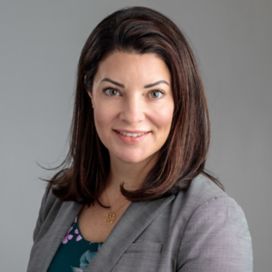Politics & Higher Education

Problem
The political environment for higher education and science is rapidly changing, posing complex challenges for faculty and administrators.
Higher education institutions are navigating a volatile political environment affecting faculty research and teaching. To better support faculty and maintain their academic mission, universities require a nuanced understanding of these changes. Faculty researchers from New York University, Colby College, Yale University, and George Mason University partnered with NORC to provide high-quality, nonpartisan data on how scholars and administrators are experiencing and responding to the current climate for higher education and science.
Solution
NORC designed a mixed-methods national study to collect comprehensive data on faculty and administrator experiences.
We are implementing a two-phase study across a sample of universities nationwide. First, NORC administers a brief online survey to faculty and administrators to assess how they have been affected by recent political developments. Second, we recruit participants for follow-up in-depth interviews conducted by the academic research partners, who bring specialized expertise in higher education policy and social science.
This collaborative approach leverages our strengths in large-scale data collection, sampling, and survey methodology while enabling the university partners to apply their subject matter and methodological expertise in quantitative and qualitative analysis. NORC manages all data collection logistics, participant recruitment, and survey administration—ensuring methodological rigor and high response rates that give the research team a robust foundation for deeper exploration.
Result
Study findings will inform current higher education policy, as well as document for the historical record a turbulent time in the life of the academy.
This study will result in a report with quantitative and qualitative findings expected in 2026. The data will provide evidence to inform decision-making and policy development in higher education and for other stakeholders interested in academic freedom and the future of research universities. Peer reviewed articles and an academic monograph are also expected.
Are You a Study Participant?
Questions about the survey? Experiencing technical difficulties? Contact us:
Related Tags
Project Leads
-
Erin Knepler
Senior Research DirectorProject Director
FAQ for Study Participants
The purpose of this survey is to evaluate how U.S. faculty and administrators are navigating the current political climate for higher education and science. The study aims to generate insights that support evidence-based practices, strengthen faculty support systems, uphold academic freedom, and foster inclusive, resilient learning environments across higher education.
The survey is funded and sponsored by the Office of the Dean of Social Sciences at New York University-Abu Dhabi and conducted in collaboration with NORC at the University of Chicago.
You were selected to participate in this important survey because of your role as a faculty member and/or academic administrator at your institution.
The landscape of higher education is rapidly evolving, and there is significant interest in understanding how faculty across the country are being impacted. This fall, NORC at the University of Chicago has been contracted to conduct three separate faculty surveys, each focused on different aspects of higher education:
- Politics & Higher Education (politicsandhighered@norc.org)
- Faculty Views on Academic Pluralism Survey (FacultyViewsSurvey@norc.org)
- The Survey of the American Professoriate’s Perspectives on Current Topics in Higher Education (FacultyPerspectivesSurvey@norc.org)
Each of these studies is independent, with its own design, research goals, and participant selection process. Because faculty were chosen separately for each project, it’s possible that some individuals were invited to participate in more than one survey.
If you have received multiple invitations from NORC, please know that we value your time and greatly appreciate your consideration of each request. Participation in all surveys is completely voluntary, and we understand if you choose not to participate in every one.
NORC will collect data from university faculty and academic administrators on how they have been affected by and are responding to recent political developments around higher education and science, as well as their opinions on current issues being debated on college campuses nationwide. The study will also gather information across institutions to develop a comprehensive understanding of faculty and administrator experiences within the broader higher education environment. We will also ask if you would be interested in participating in a future follow-up one-on-one interview.
This research entirely is voluntary. Your participation and honest responses are appreciated but not mandatory. Should you choose to participate, you may skip any questions you do not wish to answer.
If you express willingness to be contacted for follow-up research activities, you may decide whether or not to participate in an in-depth interview when you are invited to participate.
The survey will take approximately 7-8 minutes to complete, depending on your role and experiences at your institution.
NORC is a nonpartisan, nonprofit corporation affiliated with the University of Chicago that conducts survey and qualitative research in the public interest. NORC partners with government agencies, educational institutions, private foundations, nonprofit organizations, and private corporations to collect data that informs policy, supports academic research, and addresses pressing societal issues. NORC’s work has contributed to shaping public policy, drafting legislation, and guiding allocation of tax dollars and other public resources.
For this study, NORC is collaborating with researchers from New York University, Colby College, Yale University, and George Mason University, to support data collection from faculty and academic administrators about social and political dynamics within higher education institutions.
Your participation in this survey is completely confidential. Individual responses will not be shared or reported in any way that could identify you. All survey data will be analyzed in aggregate, meaning that your answers to the questions will be combined with those of all other participants to identify overall trends.
NORC takes data security seriously. Your responses are stored securely and access is limited to authorized study personnel at NORC. To ensure confidentiality, NORC will de-identify all survey data so that there will be no link between your survey responses and your name, email address, or IP address. De-identified survey data will then be sent to a secure server at Colby College in Maine. Only the analysis team (four social scientists, one from NYUAD, Colby, Yale, and GMU) will have access to these de-identified data. De-identified data may be used in future survey research.
If you have any questions or concerns pertaining to your participation in this survey, please contact NORC at the University of Chicago by email at politicsandhighered@norc.org.







